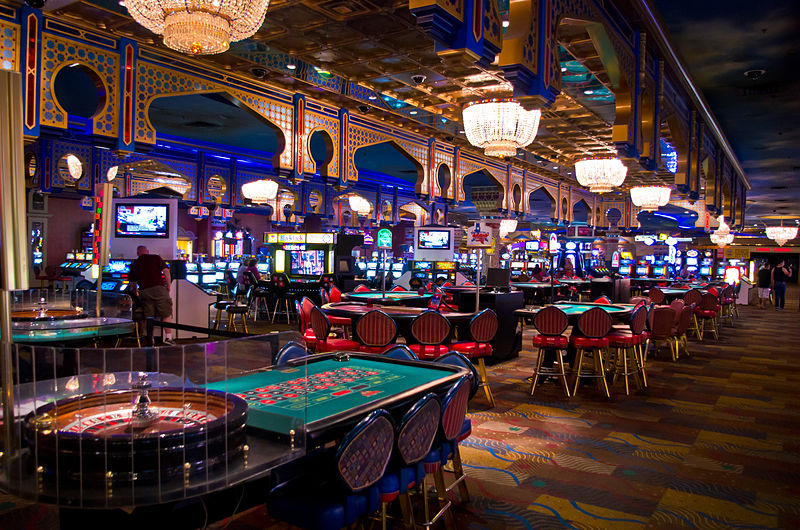The Cultural Impact of Casino Games Across the Globe
- brightstep.fr
- 0
- Posted on

Gambling games have long been a fascinating source of amusement, drawing countless of players from diverse cultures around the globe. From the glitzy casinos of Las Vegas to the thriving gambling halls of Macau, these games serve as a common thread that brings together people across different backgrounds. The allure of fortune, skill, and gambling entices not only those seeking to strike it rich but also those looking for a feeling of belonging.
The significance of casino games extends significantly past the gaming floor. They often embody the values and beliefs of the cultures in which they thrive. Games such as poker, 21, and the wheel game have integrated into the fabric of cultural phenomena, influencing multiple fields from cinema to style. As we explore this fascinating intersection of gambling and life, we can comprehend better how casino games shape and are affected by the world around us.
Historical Evolution of Gambling Activities
The beginnings of gambling activities can be tracked back to ancient civilizations, where betting in various forms was extensively performed. In China, around 2300 BC, a form of luck game known as Keno was common, while in ancient Rome, soldiers would often gamble on the consequences of their contests. The notion of using chance for amusement and income progressed over the ages, leading to the creation of more organized games. By the late Middle Ages, gambling houses began to emerge in Europe, particularly in Italy, which introduced early forms of famous games still practiced today.
As betting increased fame in Europe, the 17th and 18th centuries saw the rise of casinos as dedicated venues for betting. The initial official gaming venue, the Ridotto, was founded in the city of Venice in the year 1638, providing activities like the game of Baccarat and Faro games. This time marked a major turning point, as gaming venues began to welcome not just the wealthy but also the expanding middle-tier society. The refinement of games evolved, leading to the introduction of new regulations and variations that improved the play experience.
In the 19th century, the industrial age and shifts in social conventions also changed the landscape of casino activities. The launch of the game of roulette and new slot machines attracted a broader audience, and gambling establishments became seen as acceptable fun. This era witnessed the international spread of gaming, as gambling houses spread from European nations to the Western Hemisphere, culminating in the establishment of the iconic Las Vegas Strip in the 20th century. The progress of gaming games has persisted into the current era, integrating technology and online platforms, making them available to a global market.
## Cultural Importance in Diverse Societies
Casino activities have deep-rooted cultural and social importance across a multitude of societies around the globe. In Las Vegas, the very fabric of the urban landscape is woven around gambling establishments, where gaming is not just a pastime but a key aspect of entertainment and community interaction. The dazzling lights and dynamic atmosphere attract millions, showcasing how gambling activities can influence local economies and cultural uniqueness. This surrounding transforms the notion of relaxation into an engaging encounter that affects fashion, sound, and even cinema.
Conversely, some cultures view betting with an air of caution, considering it through the lens of ethical beliefs and heritage. For example, in numerous Asian communities, games like Mahjongg and Pai Gow Gambling are steeped in history and have significant social meanings. Đá gà 99ok These games are often played during get-togethers and occasions, fostering collective connections and solidifying familial ties. The act of participating in these games goes above mere leisure, reflecting values such as deference to seniors and the value of shared enjoyment.
Simultaneously, in European countries such as the principality of Monaco and Italy, games of chance serve as symbols of luxury and sophistication. The refined atmosphere of these venues attracts both visitors and residents, maintaining a sense of distinction and elitism. The art of Texas Hold’em and the strategic elements of games like the game of baccarat are esteemed, molding interpersonal interactions and establishing an appeal that fascinates a heterogeneous audience. This emphasizes how casino games can both mirror and shape cultural attitudes towards hazard, gain, and social interaction.
Financial Influence and Travel Industry
Casino games play a important role in the economic landscape of many areas, particularly those that depend significantly on tourism. The revenue generated from casino operations fuels local economies, creating jobs not only within the casinos but also but also in connected industries such as hospitality, restaurant services, and recreation. This influx of tourists, drawn by the attraction of games and the overall gaming environment, stimulates spending across multiple local enterprises, contributing to the economic vitality of the area.
The existence of casinos often leads to the construction of infrastructure, including lodging, transportation systems, and recreational facilities. These developments are essential in enhancing the overall tourist experience, making destinations more appealing to tourists. Additionally, many casinos contribute in local communities through sponsorship of activities and philanthropic activities, further embedding themselves into the community structure of the region. Such investment not only supports economic growth but also cultivates a positive reputation of the casino industry.
In addition, the worldwide appeal of casino games drives competitive tourism, with regions vying to attract gamblers from across the globe. Iconic destinations like Las Vegas and Macau have become identifiable with casino culture, drawing millions each year. This competitive edge encourages creativity and variety within the gaming industry, influencing trends in leisure and hospitality that extend beyond their borders. The ripple effects of this visitor influx extend far, impacting local economies and cultural interactions on a global scale. 99ok